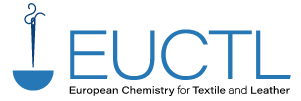In Europe, CLP and REACH are the milestone regulations adopted to improve the protection of human health and the environment from the risks that can be posed by chemicals.

Going beyond legislation, companies producing chemicals for the textiles and leather value chain are engaged in continuous improvements through research and development. They aim at the creation of new products granting high levels of performance for the final consumer articles and, in parallel, providing a reduction of the potential impacts on human health and environment, compared to products already on the market.
Another important aspect they work actively on is the communication through the value chain: education of the downstream users on the best ways to manage and use chemicals in their manufacturing plants grants safety through the production chain and high quality final products.
CLP (Regulation (EC) 1272/2008 on Classification, Labelling and Packaging) requires manufacturers, importers or downstream users of substances or mixtures to properly classify, label and package their hazardous chemicals before placing them on the market. Once a substance or mixture is classified, the identified hazards must be communicated (through labels and safety data sheets) to other actors in the supply chain and, finally, to the consumers.
According to REACH (Regulation (EC) No 1907/2006 on Registration, Evaluation, Authorisation and Restriction of Chemicals), companies have to register their substances to ECHA, the European Agency on Chemicals, providing data and test results on the properties and hazards of substances, after a collaboration among all the subjects putting on the EU market the same substance. Then, ECHA and the Authorities of EU Member States cooperate in scientific committees to evaluate if the risks connected with the production and usage of each registered substance can be properly managed, granting protection of human health. If authorities consider that risks connected to the production or specific uses of a substance are not acceptable, they can decide to restrict those uses or make the substance subject to a prior authorisation.

